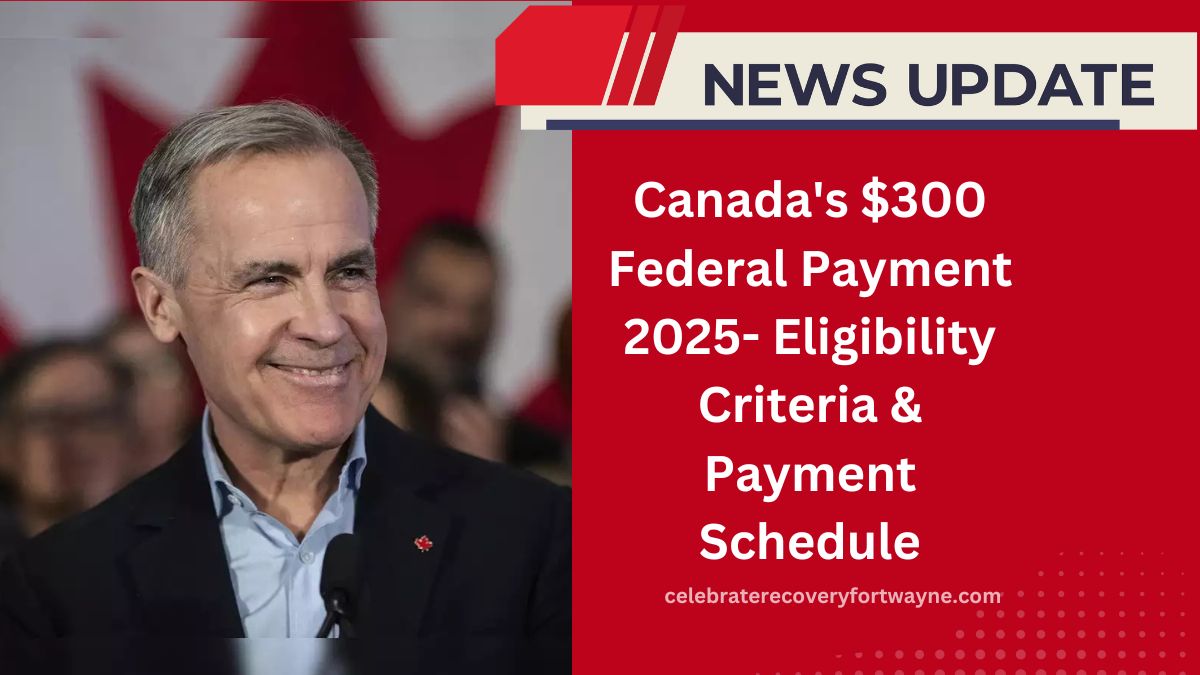The Government of Canada periodically introduces financial assistance programs aimed at supporting residents facing economic challenges.
One such initiative is the $300 federal payment, designed to provide financial relief to eligible Canadians.
This article delves into the objectives of the payment, outlines the eligibility criteria, details the payment schedule, and presents the latest developments surrounding this benefit.
Overview of the $300 Federal Payment
The $300 federal payment is a financial assistance program introduced by the Government of Canada to aid residents dealing with the rising cost of living.
Initially, this payment was part of provincial initiatives, but recent developments have led to federal funding to ensure broader support. The payment is particularly geared towards individuals and families with low to moderate incomes.
Eligibility Criteria
To qualify for the $300 federal payment, individuals must meet the following criteria:
- Residency: Applicants must be legal residents of Canada and possess a valid Social Insurance Number (SIN).
- Age: Applicants should be at least 19 years old.
- Income: The payment is intended for low to moderate-income individuals. While exact income thresholds may vary, applicants should have an adjusted family net income below a specified limit.
- Tax Filing: Applicants must have filed their 2023 tax returns by the stipulated deadline.
It’s important to note that residents of Quebec may have different programs and may not be eligible for this federal payment.
Payment Dates and Schedule
The $300 federal payment is part of the Government of Canada’s ongoing efforts to provide financial relief to its citizens. While specific dates for the $300 payment have not been officially confirmed, Canadians can anticipate the following benefit payment dates in 2025:
- Canada Child Benefit (CCB): April 17, 2025
- GST/HST Credit: April 4, 2025
- Ontario Trillium Benefit (OTB): April 10, 2025
- Canada Carbon Rebate: April 22, 2025
- Canada Pension Plan (CPP) and Old Age Security (OAS): April 28, 2025
These dates are subject to change, and it’s advisable to regularly check official government sources for the most current information.
Recent Developments
As of March 15, 2025, the Government of Canada announced the removal of the fuel charge from Canada’s carbon pollution pricing system, leading to the sunset of the Canada Carbon Rebate (CCR) for individuals.
The final CCR payment is scheduled for April 22, 2025. To receive this payment, individuals must have filed their 2024 income tax and benefit return electronically by April 2, 2025. Those filing after this date should expect the payment once their return is assessed.
Additionally, the Canada Revenue Agency (CRA) has increased certain benefits in April 2025 to assist Canadians further. For instance, the GST/HST Credit for April 2025 provides up to $170 for eligible individuals with children.
The Canada Child Benefit (CCB) offers up to $648.91 per child under six years old. These adjustments aim to alleviate financial pressures on Canadian families.
Canada’s $300 federal payment offers vital financial support to eligible residents, particularly those with low to moderate incomes.
Staying updated on eligibility criteria, payment dates, and recent developments ensures timely access to these benefits. For detailed assistance, always refer to official government sources for the latest updates.
FAQs
How can I apply for the $300 federal payment?
Eligible individuals who have filed their 2023 tax returns by the deadline will automatically receive the payment. No separate application is necessary.
Will the $300 payment be issued monthly or as a one-time payment?
While the payment amount is specified as $300, the frequency (monthly or one-time) has not been officially confirmed. It’s advisable to await further announcements from the Government of Canada.
Are there any specific requirements for seniors to qualify for this payment?
Seniors aged 65 and above who meet the residency and income criteria and have filed their 2023 tax returns are eligible. However, seniors may also be eligible for other benefits, such as the Old Age Security (OAS) pension and the Guaranteed Income Supplement (GIS)
